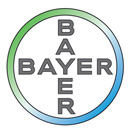Framework Partnership Agreement Cen
Publicado el 9/4/2021
Once the partnership agreement is signed, partners will be able to submit project proposals each year in response to the Humanitarian Implementation Plans (IRPs) published by DG ECHO. In this context, the CEN is working to establish an effective partnership with the Relevant European Institutions, which are particularly interested in the CEN`s standardisation activities. The first is the European Commission and the EFTA secretariat, with which the CEN maintains a consolidated public-private partnership on the “General Guidelines for Cooperation between CEN, CENELEC and ETSI, the European Commission and EFTA”, partnership framework agreements and annual operating grants. The European Commission`s Directorate-General for Humanitarian Aid and Civil Protection (DG ECHO) does not intervene directly on the ground. The implementation of humanitarian aid is carried out by humanitarian organizations such as humanitarian non-governmental organizations (NGOs) with which DG ECHO is in partnership. The Partnership Framework Agreement sets out the principles of the partnership between ECHO and humanitarian organizations. It defines the respective roles, rights and obligations of partners and defines legislation on humanitarian actions funded by DG ECHO. In the case of framework partnership agreements signed after 1 January 2014, the relevant agreements come into force on the date the Commission receives an original signed by the humanitarian organisation. It remains valid until December 31, 2018, unless the parties decide otherwise. The candidate NGO is a partner of DG ECHO for the duration of the framework partnership agreement. By developing and adopting European standards (harmonized) and other outcomes, the CEN is actively contributing to the economic policy objectives of the European Union and the European Economic Area.
Applications for the signing of the VPA must be submitted online via the APPEL electronic exchange system.
- Free Template for Prenuptial Agreement
- Material Handling Agreement Form
- Kentucky Marriage Separation Agreement
- China`s-Parliament-Ratifies-Paris-Climate-Change-Agreement-Ahead
- Contract Law Agreement Example
- Edit Rent Agreement
- Pie Agreement Definition
- Isda Agreement Template Pdf
- Distributor Agreement Auf Deutsch
- Pa Collaborative Agreement Texas


Hipertension Pulmonar Chile de Ramlight Studio está bajo licencia Creative Commons Atribución-No Comercial-Sin Derivadas 3.0 Unported.